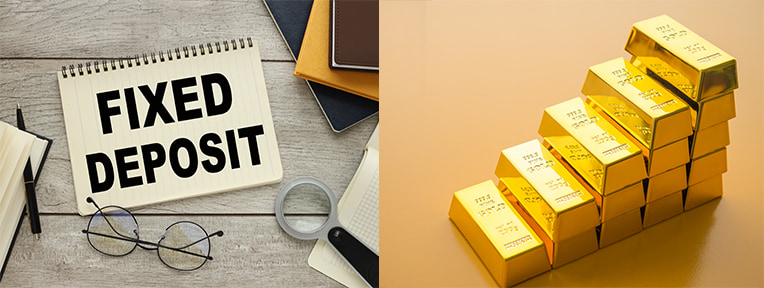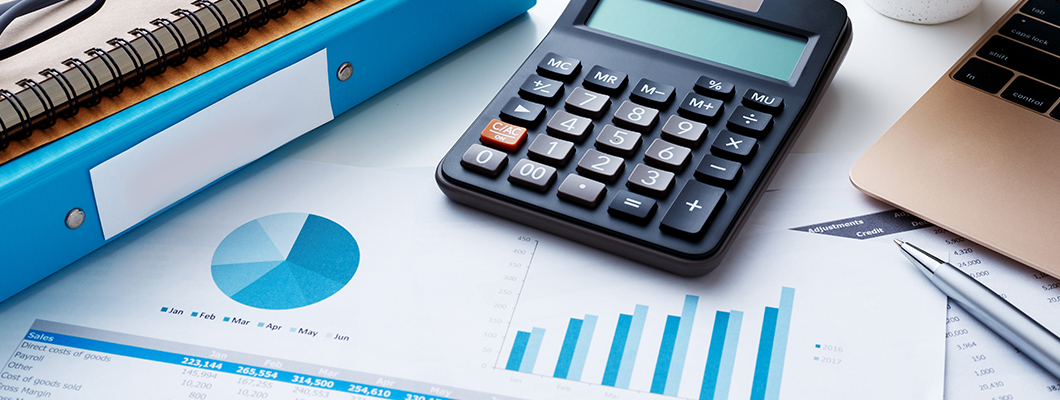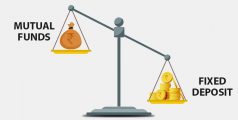
Fixed Deposit (FD) vs Gold: Key Differences
Posted on Thursday, September 26th, 2024 | By IndusInd Bank
Many investors might often face the predicament of whether to opt for a fixed deposit or invest in gold, given their popularity for being comparatively safer than other market-linked instruments and for generating satisfactory returns.
Fixed deposits offer a guaranteed and stable return on investment with minimal risk, making them best for conservative investors. In contrast, gold has historically been a hedge against economic uncertainties and inflation, offering the potential for higher returns over the long run.
When comparing fixed deposit vs gold investment, the choice must be based on your financial goals, investment time frame and risk appetite level. Also, you must consider the liquidity of investment; certain FDs have lock-in periods while gold can easily be converted into cash. The ease of management is another factor; FDs require minimal oversight while gold may need secure storage.
When it comes down to FD vs gold, balancing both options within your investment portfolio may provide a more diversified and secure investment strategy. Continue reading to enlighten yourself about the key distinctions between fixed deposits and gold investments to make a well-informed decision.
1) Stability and Risk
FDs are known for their security and stability. Your principal component is safe, and the returns are assured. There is minimal risk involved, making it a perfect choice for conservative investors.
Gold is considered a safe haven but comes with the risk of market volatility. Its value can drastically fluctuate depending on global economic factors, market conditions and geopolitical tensions.
2) Returns
FDs offer a fixed interest rate for a specified tenure. Note that the interest rates offered on FDs are usually higher than those of a standard savings account and are unaffected by market fluctuations.
Besides this, FDs offer other benefits that may help you in financial planning and attaining your savings goals. For instance, IndusInd Bank offers the following features apart from providing the best-in-class fixed deposit interest rates, ensuring predictable returns.
| Hassle-free instant booking | Book your FD online in just three simple steps using PAN and Aadhaar through the Indus Mobile App |
| Auto-renewal | Multiple options for interest payment (monthly, quarterly, half-yearly, annually, or at maturity) |
| Complete KYC instantly | Book an FD of any amount through Video KYC |
Gold investment does not provide regular interest earnings. Its returns are based on price appreciation over time. If the price of gold rises, you profit; if it falls, the value of your investment decreases.
3) Tax Implications
Interest constituent earned on FDs is taxable as per your income tax slab. However, tax-saver FDs that have a lock-in of five years provide tax benefits under Section 80C.
Profits from selling gold are subject to capital gains tax. If you sell your gold after holding it for two years from the date of purchase, you are required to bear a long-term capital gains tax of 12.5%. If the assets were sold within two years of purchase, you are required to pay short-term capital gain tax, which means the gains are added to your income tax slab.
Note that the capital gains tax can be exempted if you buy a residential property using the gold proceeds under Section 54F, subject to meeting certain conditions.
4) Investment Purpose and Tenure
Fixed deposits are best suited for short to mid-term investment goals, ranging from a few months to several years. They are favourable for conservative investors looking for guaranteed returns.
Gold is often viewed as a long-term investment and a hedge against inflation. Also, it is culturally significant in India, often bought during weddings and festivals.
5) Liquidity
Certain FDs come with a lock-in period and premature withdrawals can attract penalties. However, some FDs allow partial liquidity through loans against FDs.
Gold is extremely liquid. You can sell it anytime in the market. However, selling physical gold may incur making charges and purity verification expenses.
Also Read: Understanding the Maturity Process of Fixed Deposits: When and How to Withdraw Your Funds
Ending Note
When the decision of gold vs FD arises, the selection must be based on your financial goals, investment horizon, and risk appetite level. You can make an informed decision on these three criteria only if you understand their distinctions in terms of – stability and risk, returns, liquidity, taxation investment purpose, and tenure.
FDs, such as those offered by IndusInd Bank, provide assured returns, stability, and flexible options to open an account instantly through video KYC. On the other hand, gold offers liquidity and potential for price appreciation but comes with no regular income and higher volatility. If you decide to primarily invest your corpus in an FD, ensure that you apply for an IndusInd Bank Fixed Deposit. Doing so will allow you to enjoy the benefits of a rewarding and safe investment. So, do not wait any longer, take your first step towards investment in an FD today. Apply now!
Disclaimer:The information provided in this article is generic and for informational purposes only. It is not a substitute for specific advice in your circumstances. Hence, you are advised to consult your financial advisor before making any financial decision. IndusInd Bank Limited (IBL) does not influence the views of the author in any way. IBL and the author shall not be responsible for any direct/indirect loss or liability incurred by the reader for making any financial decisions based on the contents and information.



 Offers
Offers Rates
Rates Debit Card Related
Debit Card Related Credit Card Related
Credit Card Related Manage Mandate(s)
Manage Mandate(s) Get Mini Statement
Get Mini Statement
 categories
categories Bloggers
Bloggers Blog collection
Blog collection Press Release
Press Release


